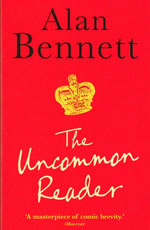The Butterfly Cabinet by Bernie McGill
I have to say, at first, that I was ever so slightly disappointed with my latest read, Bernie McGill’s The Butterfly Cabinet. I’m never usually swayed by new releases, as they are expensive, and usually you don’t have any feedback apart from the publisher pushing the title onto the shelves (with the classics I buy at least you have years of proof that they are worth a read). But something about the Butterfly cabinet entranced me, maybe because it is set in Ireland, maybe the title, maybe the cover of the book.
The story is of a child killed in an Irish estate in 1890’s, and the novel is retellings of the events around that day, leading up and the aftermath. It is told by the mother, accused of the murder of her child, Harriet Ormond, and the nurse at the estate, writing letters in the 1960’s, telling her side of the story many years later.
Harriet is a character that you are meant to dislike, I think. I haven’t quite figured it out yet. She seems utterly cold and cruel, which is what is expected in a character that leaves her child tied up in a room until she is strangled to death. You hear during the trial that Harriet was prone to cruelty towards her children in their punishments, and you hear from her point of view that she was just trying to make the children remember their crimes and punishment so they would learn. However, what really added to my, I want to call it dislike, but its not really that I disliked Harriet, I think it is more that you see her as a misunderstood figure, is the whole premise of a butterfly cabinet. I love how people’s own experiences in the world and in their past can alter how a book is read, how a character is perceived, and that each individual feels towards something differently. It made me feel quite ill, how Harriet described the killing of a butterfly, by the squeezing of their thorax, when she describes the creatures with such reverence. I remember when I once went to a zoo and there was a butterfly display. I can still remember how nauseous it made me feel to see these beautiful creatures dead, and pinned so cruelly and on display, and I had to leave the place, nearly in tears. I remember saying to my Dad, ‘would you kill humans, and pin them on a wall in a museum, just because they are beautiful?’ That is the same feeling I get when I think of Harriet, killing these butterflies for sport, her leaving her only daughter tied up in a wardrobe until she suffocates and is strangled.
You are probably thinking, that if the novel can make you feel all that, why was it a disappointing read? I just have to say that the writing just didn’t draw me in enough, but since this was a debut novel, I think we can forgive Bernie for that one. The character development is quite interesting, and you begin to understand Harriet more when she describes her childhood, and motherly failings.
“My mother did teach me an important lesson. She taught me the importance of armour. She taught me how to construct my own impenetrable cocoon. She taught me how to protect the spirit. She taught me how to hide within myself. I have tried to teach the same lesson to my children, but they have always been stronger than me. If I am guilty of failing to do my duty of a mother than it is in this: I have not succeeded in teaching them how to safeguard themselves from love.” 240.
The storyline was the one thing that kept me going until the end, and it is truly surprising the emotions that McGill makes you feel at the conclusion of the novel. The twist makes you re-evaluate the feelings you had towards Harriet, the events of that day, and all who was involved. Well worth a read.







